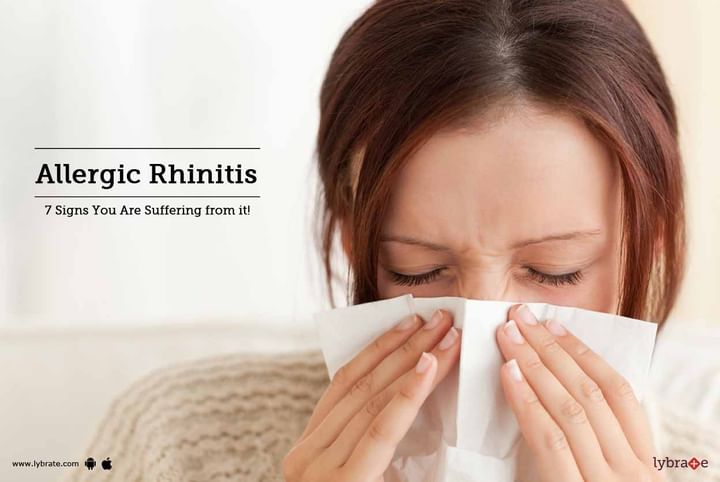Allergic Rhinitis - 7 Signs You Are Suffering from it!
Allergic rhinitis is characterized by symptoms of a runny nose, congestion, itchy eyes and sneezing. This disorder is usually caused by allergens such as pollen and dust. Commonly known as hay fever, allergic rhinitis may exhibit the following symptoms:
The symptoms of allergic rhinitis are:
1. You may experience a runny nose and congestion in the nose
2. You may have allergic conjunctivitis where your eyes turn itchy and watery
3. Persistent coughing
4. Symptoms of sneezing
5. Swelling may develop underneath the eyes
6. You may have an itchy nose
7. Constant signs of fatigue
Causes
Allergic rhinitis or hay fever causes the immune system to recognize certain airborne substances as harmful. The immune system in the body starts to form antibodies to combat these irritants. The antibodies cause the body to release “histamine”, a chemical that triggers the symptoms of allergic rhinitis.
The various triggers that may cause allergic rhinitis are:
1. Dust mites
2. Tree pollen
3. Grass pollen
4. Spoors from outdoor and indoor fungi
5. Ragweed pollen
The treatment for this disorder is to avoid exposure to the triggers. Mild symptoms of this disorder may be treated with over-the-counter medications whereas severe symptoms may require prescription medications.
The various medications for allergic rhinitis are:
- Antihistamines: Antihistamines may be administered as pills or nasal sprays; these medications can help with itching and sneezing. Antihistamines help in limiting the effects of histamine in the body.
- Nasal corticosteroids: These prescription medications can help treat itching and inflammation in the nose. They are usually the first medications that are administered.
- Decongestants: Decongestants are over-the-counter medications that can be used to treat congestion in the nose. You should be careful not to overuse these medicines as they can increase blood pressure.
- Allergy shots: If medications do not relieve symptoms of allergic rhinitis, the doctor may prescribe allergy shots to treat the disorder. The injections contain allergens in small amounts which are injected over a period of time; this causes the body to get used to these allergens, resulting in a reduction of the symptoms. If you wish to discuss about any specific problem, you can consult a doctor.



+1.svg)
